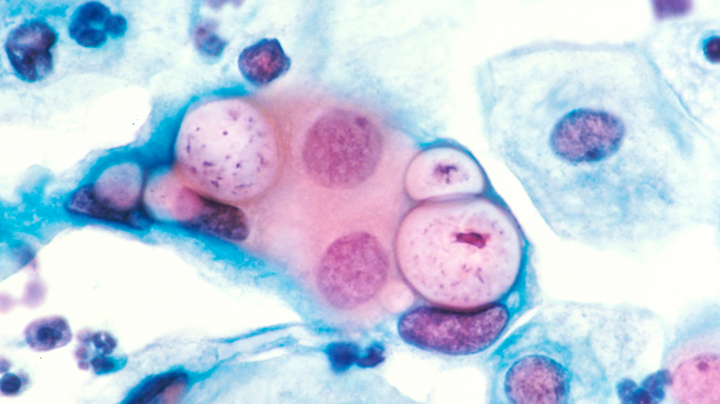
Most people who have chlamydia don’t know it since the disease often has no symptoms. It is a bacterial infection of your genital tract. Chlamydia may be difficult to detect because early-stage infections often cause few or no signs and symptoms. When they do occur, they usually start one to three weeks after you've been exposed to chlamydia. Even when signs and symptoms occur, they're often mild and passing, making them easy to overlook.
Quick Facts
- Chlamydia is a bacterial infection that you can successfully treat with antibiotic medicine.
- Chlamydia is a silent operator - most people who have chlamydia don’t show any symptoms.
- You can contract Chlamydia through vaginal, anal, and oral sex.
How is Chlamydia transmitted?
Well, you will get it if you come in direct sexual contact with someone who has the infection - through oral, anal, or vaginal sex. You can still get it even if there’s no release of sexual fluids. Chlamydia is so easily transmittable that an infected mother can give it to the child during childbirth!
Now, don’t get paranoid out of fear. Chlamydia will not just casually attach itself to you and won’t spread through just casual contact like sharing drinks, food, kissing, hugging, holding hands, coughing, sneezing and through toilet seats.
How do you prevent the transmission of Chlamydia?
Chlamydia is generally spread through sexual contact. The best way to prevent chlamydia is to use condoms (male or female) if you have sex or dental dams for oral sex.
What are the symptoms of Chlamydia?
Chlamydia doesn’t usually show up with physical symptoms, so most people who have it don’t know that they have it, neither would you know for sure if you have it! However, there is a list below that you might want to see, so that if any of them manifests in your body, then you would know that you must get tested immediately:
- Hot and painful sensation when peeing
- Pain during sex
- Pain in the lower part of your stomach.
- Abnormal vaginal discharge (may be yellowish and have a strong smell)
- Bleeding between periods
- Pus or a watery/milky discharge from the penis
- Swollen or tender testicles
- Pain, discharge and/or bleeding around the anus
Is there treatment for Chlamydia?
Chlamydia is usually easy to get rid of. Your nurse or doctor will get you antibiotics to treat the infection. Your doctor will help you figure out which treatment is best for you.
If you’re treated for chlamydia, it’s really important for your sexual partners to get treated also. Otherwise, you can keep passing the infection back and forth, or to other people.
If you’re getting treated for chlamydia:
- Take all of your medicine the way your doctor tells you to, even if the symptoms go away sooner. The infection stays in your body until you finish the antibiotics.
- Your partner(s) should also get treated for chlamydia so you don’t re-infect each other or anyone else.
- Don’t have sex for 7 days. If you only have 1 dose of medication, wait for 7 days after you take it before having sex. If you’re taking medicine for 7 days, don’t have sex until you’ve finished all of your pills.
- Don’t share your medicine with anyone. Your doctor may give you a separate dose of antibiotics for your partner. Make sure you both take all of the medicine you get.
Chlamydia can become a big deal if it’s not caught and treated early. Chlamydia can spread to your uterus and fallopian tubes, resulting in pelvic inflammatory disease (PID) which can cause pain, infertility, or ectopic pregnancy. If you have a penis, a chlamydia infection can spread to your epididymis (a tube that carries sperm from your testicles), and can cause chronic joint pain. In rare cases, it can make you infertile. Having chlamydia may increase your chances of getting or spreading HIV, the virus that causes AIDS.
Ladies: If you have chlamydia during your pregnancy and don’t treat it, you can pass it to your baby when you’re giving birth. Chlamydia can cause eye infections and pneumonia in newborns, and it also increases the risk of delivering your baby too early.
What happens during a chlamydia test?
Chlamydia testing can be as simple as peeing in a cup. Sometimes the test is done by a doctor gently touching your genitals with a cotton swab, to take cell samples from your urethra, vagina, cervix, or anus. The samples are tested for chlamydia bacteria. Your doctor may also be able to see chlamydia symptoms, like discharge on your cervix, during an exam.
How is it transmitted?
Among all age groups, teens and young adults have the highest rates of infection. Most women with chlamydia (and about half of men) do not experience symptoms. Since symptoms may not be present, the only way to know if a person who may be at risk is infected with chlamydia is to be tested. Chlamydia, like other STIs, is passed from an infected person to a partner through certain sexual activities. Chlamydia is passed primarily during anal or vaginal sex. It is less likely to be transmitted through oral sex. Chlamydia is not passed through things like shaking hands or toilet seats.
Chlamydia can cured with a simple antibiotic, however, if left untreated, chlamydia can lead to complications such as PID (Pelvic Imflammatory Disease) and, potentially, infertility. A person is able to transmit chlamydia to a partner from the time they become infected until treatment is completed.
What does it mean for my health?
If untreated, chlamydia can cause complications in men, women and infants.
Untreated chlamydia infections in women may lead to:
- Long term pain
- Infertility
Untreated chlamydia in men may lead to:
- Long term pain
- Scarring
- Infertility
